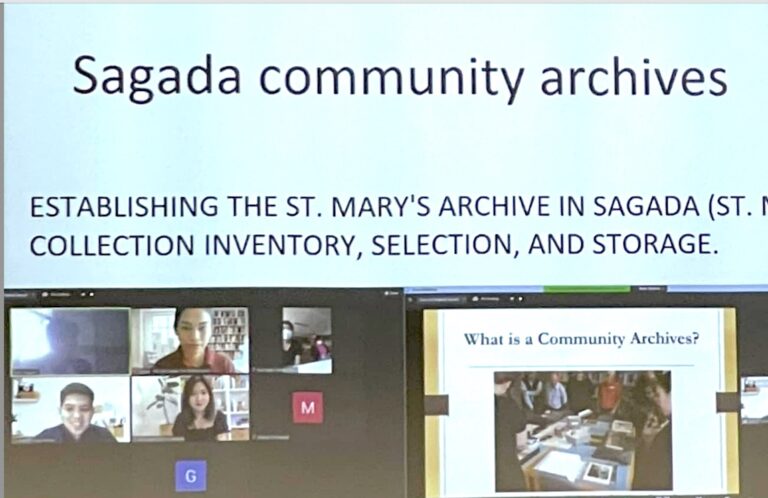
Led by DECOSEAS associate partner Professor Verne de La Peña, and the University of the Philippines Ethnomusicology Center, the project is a direct output of the UPCE’s continuing transformation from an academic centered repository of Dr Jose Maceda’s invaluable UNESCO inscribed field materials to a more community centered site for engagement and empowerment. The project highlights the role of source community enagagement in archival decolonial practice.
This is a recording of Professor Verne de La Peña’s talk at SOAS. The talk was attended by cultural stakeholders from Sagada who have migrated to the U.K. A lively discussion followed and was well-liked on social media.
See Averil Pooten’s post here.
Background (from the UPCE’s site)
When the digitization of the reel tapes from the Jose Maceda Collection of the UP Center for Ethnomusicology (UPCE) were finished in 2012, the next logical step taken by then UPCE Executive Director Dr. Ramon P. Santos was to provide digital copies to the communities where these recordings came from. The opportunity came during a Field Exchange Project (FieldEx) between the UPCE and Laon-Laon Dialogue Partner National Taiwan Normal University. While Dr. Santos led the Philippines delegation, Dr. George Chien led his team of researchers from NTNU. Digital copies of music materials from as early as 1953 were repatriated in DVD format to the Sagada and Mountain Province Local Government Unit (LGU) in March 2013.
This act of repatriating the copies struck FieldEx Head Researcher Dr. LaVerne de la Peña that 5 years after, as the new UPCE Director, he conceived the ReCollection Project as a flagship program of the UPCE. Comprised of three components, ReVisit, Repatriation, and ReCollection, the project seeks to go back to the research areas of UPCE Founder and National Artist Dr. Jose Maceda. Each field ReVisit will look into the existing music practices and musical expressions of the community. While there, a ceremonial turn-over of the digital works will be made. Copies of these recordings will be Repatriated to the public library, schools, LGU, and next-of-kin of those who participated in the recordings. Finally, the ReCollection component attempts to find out if the music recorded are still being practiced or if these audio recordings are familiar to the elders and older members of the community.
The project has also published a co-authored chapter in The Legacy of Indigenous Music entitled “Re-sonating Voices, Sounds, and Memories: The Repatriation of 60-Year-Old Field Recordings from Sagada, Mountain Province in Northern Philippines.” by Professor Verne de La Peña, and Alma Louise Bagano.
Access the chapter here: https://link.springer.com/chapter/10.1007/978-981-16-4473-3_5